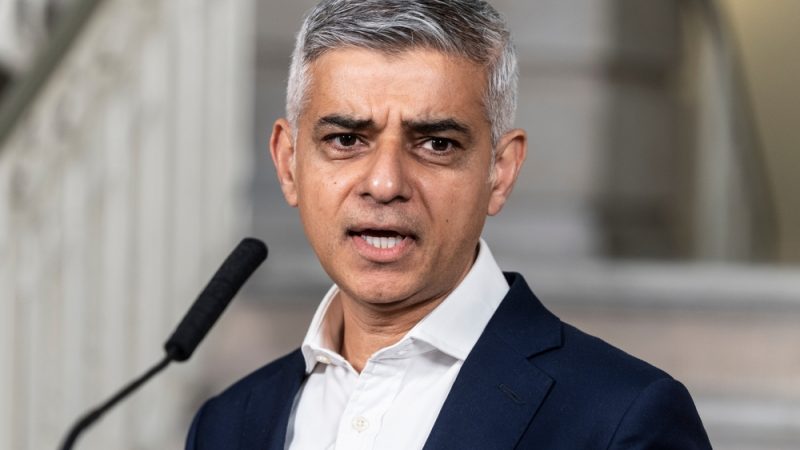
When Keir Starmer joined Sadiq Khan to launch the London mayoral election campaign, Labour seemed curiously downbeat about its prospects. Saying it will be the closest election ever, Khan is appealing to Green and Lib Dem voters to throw their support behind him.
It’s true that the election system is now first past the post, not transferable vote. Even so, surely Labour should be confident of a sweeping victory, and in a city in which it must win a big majority of seats, and under the same electoral system, if we are going to form the next government?
Labour ought also to be confident of winning all this May’s other English directly-elected mayors. There seem to be no reliable local polls – the London-centric political establishment probably think local elections outside the capital don’t really matter – but based on national polling, Labour must sweep Andy Street and Ben Houchen out of power in the West Midlands and Tees Valley. Street has at least occasionally stood up to the government.
Meanwhile Houchen has been roundly criticised over his combined authority’s handling of a major Teesside regeneration scheme. An independent review found “a number of decisions taken by the bodies involved do not meet the standards expected when managing public funds”, though found no evidence of corruption or illegality.
Both elections are again in areas where Labour must win many new MPs later this year. So why is there so little effort to drum up national excitement about these Labour gains?
Low-turnout elections will always be vulnerable to surprises
Perhaps this is just a cautious downplaying of Labour’s chances: the mayoral equivalent of ‘not taking voters for granted’ at the forthcoming general election. It’s possible that Khan is merely trying to maximise his support, and the low-key campaigns elsewhere are a manifestation of quiet confidence.
But there may be a deeper issue Labour needs to think about. Low-turnout elections that few voters really care about will always be vulnerable to surprises. Traditional allegiances may be overturned by populist candidates. Incumbents may be targeted, however unfairly, for their perceived failings. Even a party leading in the polls but generating little excitement may be hampered by voters alienated by issues like ULEZ or Israel/Gaza.
After all, London mayoral elections gave us 16 years of Ken Livingstone and Boris Johnson: surely two of the politicians least fit to hold high public office in one of the world’s greatest cities. That Labour could not win – Livingstone was first elected against Labour – for so long in what was otherwise increasingly a Labour city should give us pause for thought.
Local elections often run against the party in power
We can hope that Labour will sweep the mayoral board this May. Anything less would be a huge embarrassment and give the Tories some hope of avoiding total disaster.
But what may happen in 2025 when mayors will be chosen for four new authorities (Norfolk, Suffolk, Hull and East Yorkshire and Greater Lincolnshire) and Labour is defending West of England and Cambridgeshire and Peterborough?
It’s a sad truth that local elections often run against the party in power. If Labour becomes the government after the general election, mayoral elections may become increasingly difficult to defend and to win.
Not only might this give the Tories a quick way back, but it could also open the door to even more disruptive forces. It was the low-turnout Euro elections that gave UKIP their influential foothold on the way to Brexit. It’s not hard to see Reform or some other right-wing populist force making ground and setting the agenda for all the other parties.
Labour must empower local councils and communities
This admittedly pessimistic perspective should make Labour wonder how much it wants to invest in the mayoral model. We can all recognise the real achievements of Labour mayors using their soft leadership skills and limited devolved powers. Andy Burnham and Sadiq Khan had greater public recognition than Rachel Reeves in one recent poll.
But at the end of the day, the mayoral model has grafted a thin layer of new governance above local authorities who have been devastated by austerity and communities that have been progressively disempowered. It may suit Whitehall officials to deal with a handful of mayors who have to respond to Whitehall priorities rather than powerful and influential local authorities. Labour’s commitment to localism should be deeper and richer.
Given the political risks down the road, Labour’s starting point should be the real empowerment of local councils and the communities they represent. These should be the building blocks for creating the combined authorities they need to exercise powers over a wider geography. And they, not the government, should decide if they want a mayor.
If you have anything to share that we should be looking into or publishing about this or any other topic involving Labour, on record or strictly anonymously, contact us at [email protected].
Sign up to LabourList’s morning email for a briefing everything Labour, every weekday morning.
If you can help sustain our work too through a monthly donation, become one of our supporters here.
And if you or your organisation might be interested in partnering with us on sponsored events or content, email [email protected].




More from LabourList
Turning the page? Labour’s recovery in the polls show a path to 2029 victory
Restoration announce recommendations for NEC candidates
‘Factionalism at the top is weakening Labour – and handing a gift to Reform’